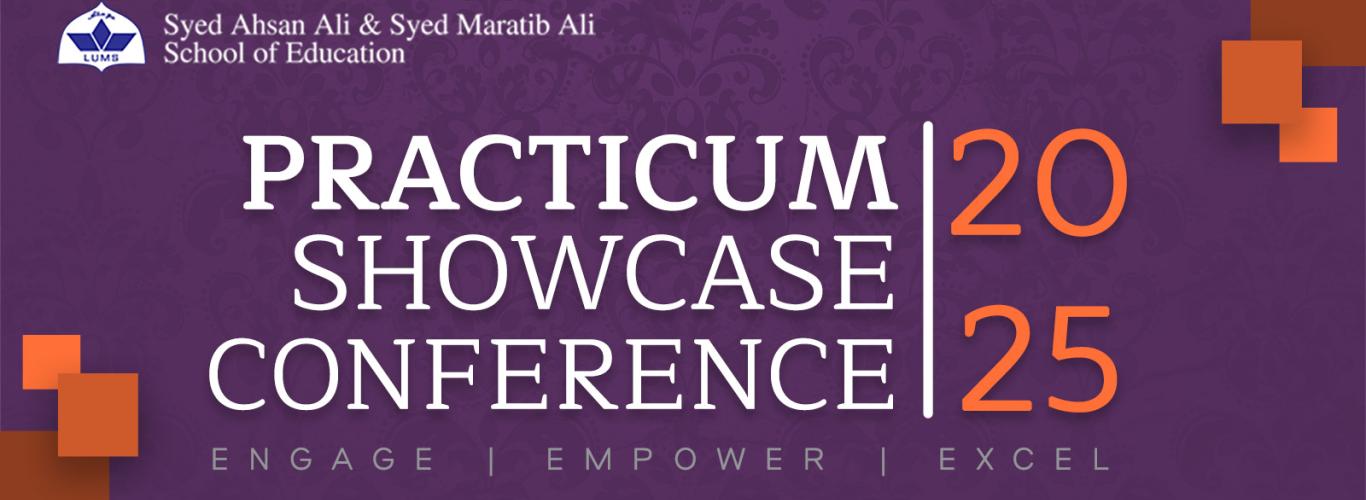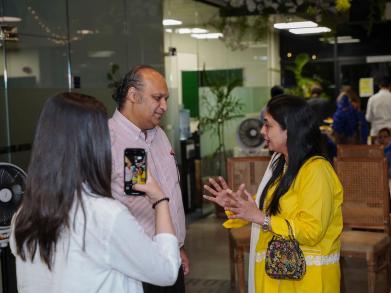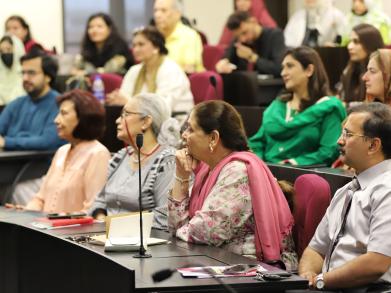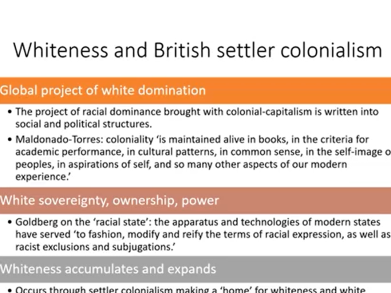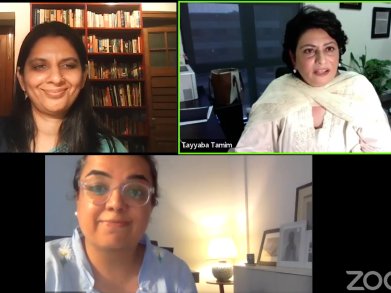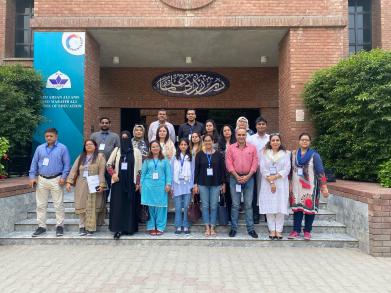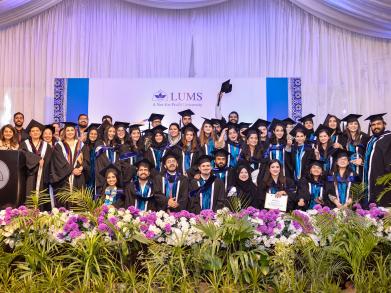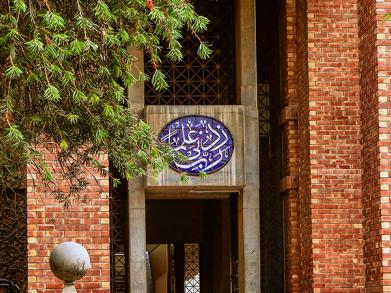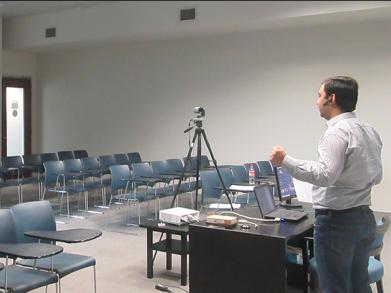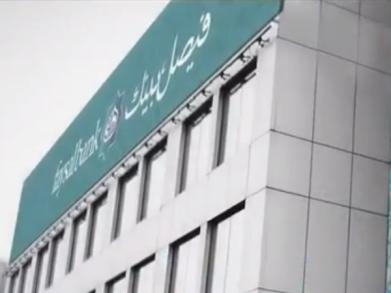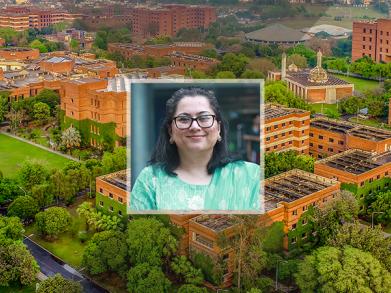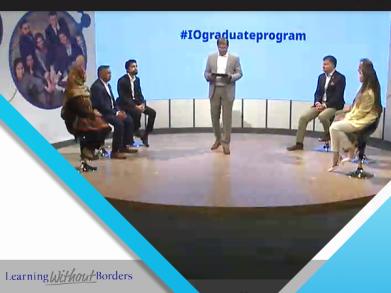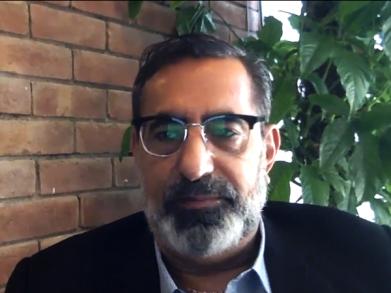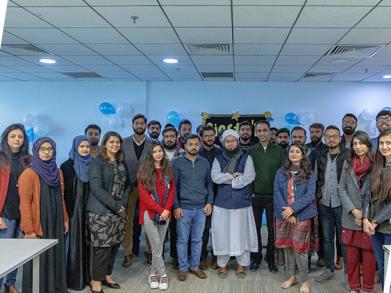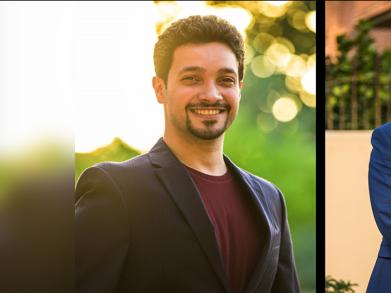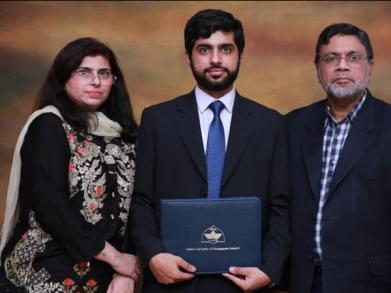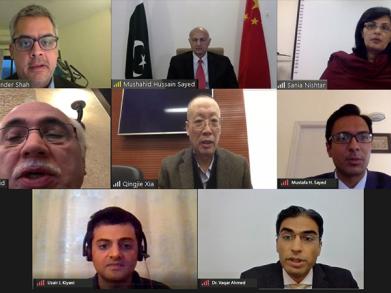Practicum Showcase Conference 2025 Report
School of Education – LUMS
Date: Monday, April 28, 2025
Time: 9:45 AM – 2:30 PM
Venue: School of Education, LUMS
Introduction
On April 28, 2025, the School of Education (SOE) at LUMS hosted the annual Practicum Showcase Conference, a hallmark event that serves as the culmination of the graduating Education Leadership and Management (ELM) cohort’s practicum experience. This multifaceted event provided students with an opportunity to present their year-long research, engage with professionals in panel discussions and poster presentations, and facilitate workshops aimed at promoting innovation and inclusion in educational leadership.
The conference featured a dynamic Gallery Walk, three expert panel discussions, two interactive workshops, and addresses from eminent leaders in the field of education, drawing participation from partner schools, NGOs, academics, and policymakers.
Keynote Address
The day commenced with a keynote speech by Baela Raza Jamil, CEO of Idara-e-Taleem-o-Aagahi, titled “People, Evidence, Policy & Actions for Education.” Baela called the conference “fabulous and phenomenal,” and urged the educational community to reclaim the human dimension of learning, where heart and emotion play just as crucial a role as intellect. She emphasized the long-term consequences of failing to provide foundational learning opportunities during early childhood, criticizing traditional factory-style education systems.
She shared examples from the ASER Pakistan initiative, which leverages community-driven data to advocate for foundational learning reforms. She also highlighted international frameworks such as the Copenhagen Declaration as steps forward in evidence-based policymaking. Baela concluded by calling LUMS-SOE a “powerful space for fresh ideas and solutions,” underscoring its role in shaping the future of education through data, empathy, and partnerships.
Panel Discussions
Panel 1: Educational Challenges for Minority Communities
Topic: The Role of Sociocultural Stressors on Students’ Academic Performance
Panelists: Dr. Tayyaba Tamim, Dr. Mirza Naseer Ahmad, Mary James Gill
Moderator: Firyal Shah
This panel highlighted how systemic discrimination and personal identity struggles intersect to impact minority students’ educational experiences. Dr. Tayyaba Tamim spoke of the emotional trauma caused by biases and exclusionary behaviors from teachers and peers, which often go unnoticed yet deeply disrupt learning. Dr. Naseer emphasized that minority students frequently feel alienated, leading to reduced engagement and confidence.
Mary James Gill challenged the audience to think critically about whom we include when we say “minorities.” Using examples of sanitation and domestic workers’ children, she demonstrated how class-based stigma and occupational shame silence students’ identities. The panel criticized practices like asking for religious affiliation on forms and called for policy reforms that actively promote inclusivity rather than mere tolerance.
Audience members, including representatives from Deaf Reach and HITEC Education City, shared inclusion strategies and field-level reflections, reinforcing that meaningful change is possible when schools shift from symbolic diversity to structural inclusion.
Panel 2: Leadership Practices and Teacher Turnover
Topic: Examining the Relationship with Teacher Motivation and Self-Efficacy
Panelists: Madiha Rizwan, Dr. Sajid Ali, Attiya Fatima Noon
Moderator: Hajira Najeeb
This panel tackled teacher turnover as a crisis rooted not in policy alone, but in leadership failure and identity dissonance. Madiha Rizwan observed that many new teachers enter the profession without passion or preparation, viewing it as a temporary occupation. When faced with real classroom demands, they often exit prematurely.
Attiya Noon advocated for practical leadership empowerment—removing bureaucratic constraints so school leaders can address burnout, training needs, and job satisfaction. Dr. Sajid Ali underscored that teacher licensing must reflect pedagogical competence, not just paper qualifications. He called for a societal reset in how teaching is valued—on par with engineering or medicine—to restore professional pride.
The panel collectively emphasized that leadership is the pivot: when school heads are trusted, teachers feel valued; when systems respect teachers, retention and motivation follow.
Panel 3: Reimagining Professional Education
Topic: Raising Standards, Empowering Educators
Panelists: Tina Hameed, Taimur K. Bandey, Sannia Hussain
Moderator: Dr. Faisal Bari
This session spotlighted gaps in teacher training infrastructure, with calls for systemic and cultural transformation. Panelists stressed that degrees alone do not ensure effective teaching—skills in classroom management, multilingual instruction, and student engagement are equally essential.
Taimur Bandey shared how the IB system requires experiential pedagogy, which most local training programs overlook. Sannia Hussain spoke about the social stigma of speaking regional languages like Punjabi in classrooms, suggesting that embracing translanguaging can make classrooms more inclusive.
Tina Hameed stressed the lack of government-subsidized training institutions, and the importance of budgeting for teacher development. The panel also called for incorporating digital literacy and global competencies into training programs and urged school leaders to use training needs assessments to shape professional development investments. Reflectivity, relevance, and equity emerged as core pillars for reimagining teacher education in Pakistan.
Workshops
Workshop 1: Using Storytelling to Understand the Lived Educational Experiences of Women and Girls
Facilitators: Anam Rehman, Rabia Hasan, Khawaja Bilal Ahmed Lone
Guest Speaker: Musharraf Ali Farooqi (CEO, Storykit)
This workshop brought a creative and emotionally charged approach to understanding gendered educational experiences. The session began with an immersive storytelling session by Musharraf Ali Farooqi, who shared how storytelling can be an empowering socialization tool, especially for shy young girls aged 9–10. He emphasized storytelling’s capacity to build imagination, empathy, and confidence, and showed how breaking stories into parts makes creative participation more accessible.
Participants then wrote and shared personal narratives about their educational journeys, revealing deep insights into gender bias, societal expectations, support systems, and resilience. These narratives were analyzed under two major themes:
- Cultural Attitudes & Societal Norms: pressure to conform, internalized gender roles, and limited aspirations.
- Contextualized Learning: the value of community, reflective practice, and emotional support.
The workshop left a strong impression on participants from institutions like Amal Academy, Akhuwat, and LCWU, and powerfully demonstrated how storytelling can be a transformative tool for educational empowerment.
Workshop 2: Making Math Count – Contextual Strategies for Teaching Foundational Numeracy
Facilitators: Areej Mahmood, Haniya Tariq, Kainat Safdar Abbas, Naveed Haseen Siddiqui
This hands-on workshop demonstrated how low-cost, activity-based strategies can revolutionize math instruction in low-resource contexts. Attended by LUMS students and professionals from across the education sector, the session emphasized collaborative planning and contextualization of learning outcomes.
In small groups, participants designed engaging math activities (focused on addition/subtraction for Grade 1) using household or easily accessible materials. Each group followed a structured planning framework to link Student Learning Outcomes (SLOs) with students’ everyday experiences.
The presentations sparked dynamic peer feedback and reflection. The session successfully demonstrated that creativity, contextual awareness, and teacher collaboration can make foundational numeracy both accessible and joyful, even in under-resourced settings.
Gallery Walk: Celebrating Student Research and Impact
The Gallery Walk was a vibrant culmination of the practicum experience, showcasing student-led research projects focused on instructional leadership, school improvement, stakeholder engagement, and pedagogical innovation. The walk fostered interactive dialogue between students, faculty, and education professionals from partner organizations like Idara-e-Taleem-o-Aagahi and Beaconhouse School System.
Examples of some projects on display:
- Early Childhood Care and Education: examining perceptions of ECE teachers and policy-practice gaps.
- Gamifying Project-Based Learning: integrating play into curriculum to enhance student motivation and learning outcomes.
- Inclusive School Environments: tackling ableism and socio-emotional safety in mainstream schools.
The presence of LUMS leadership, including the Vice Chancellor Dr. Ali Cheema and the Provost Tariq Jadoon lent further prestige. Dr. Jadoon praised the student body for its commitment to addressing Pakistan’s education challenges through evidence-informed, context-aware innovation.
The Gallery Walk was not just an exhibition—it was a celebration of transformation, both institutional and personal, as emerging leaders showcased their role in shaping the future of education.
Closing Remarks
In her closing address, Dr. Tayyaba Tamim, Dean of the School of Education, congratulated the graduating batch and expressed gratitude to partner institutions for providing students with real-world mentorship and collaboration opportunities. She emphasized the school’s mission to humanize teacher education, moving away from transactional models toward reflective, respectful engagement. She concluded with a call for sustained partnerships between universities and schools to ensure that educational reform is not only envisioned but implemented collectively




